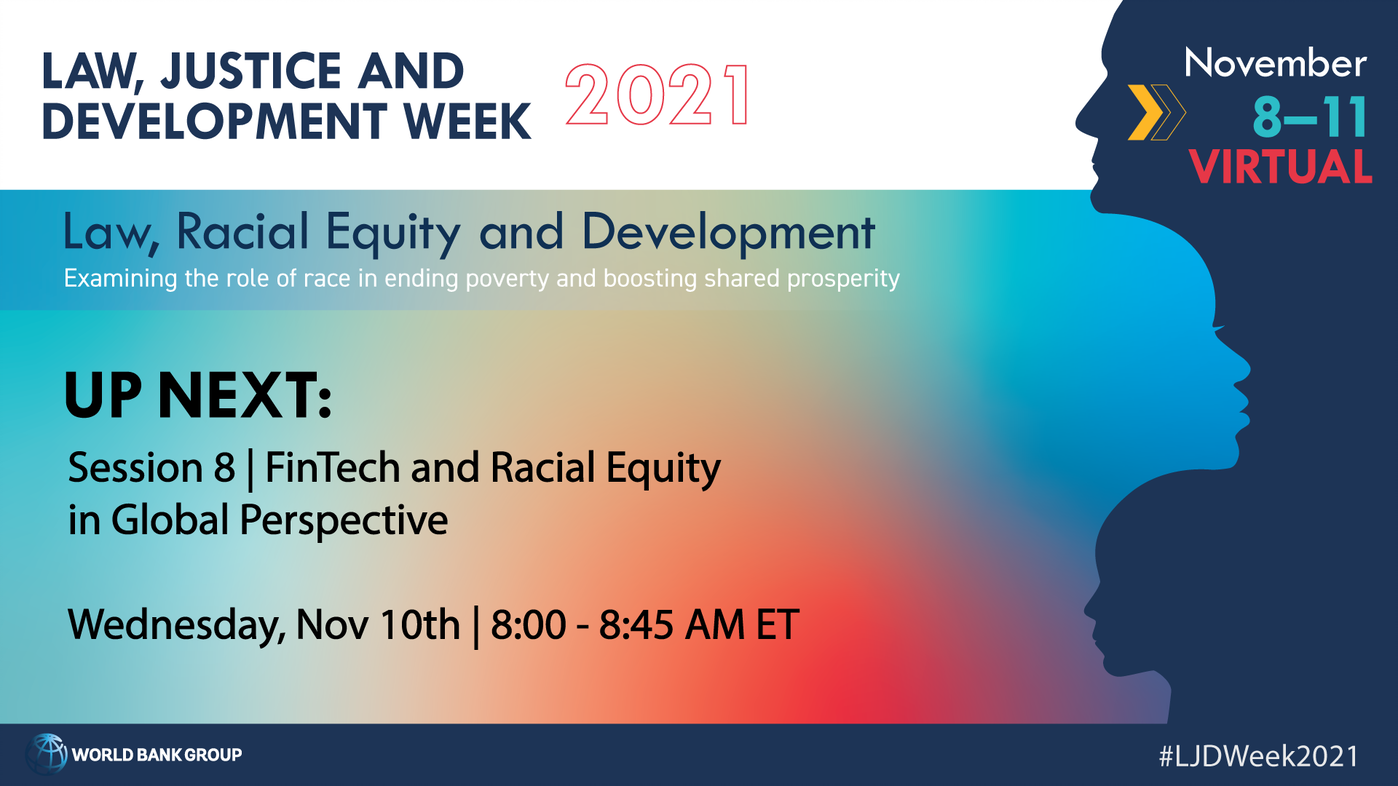A session co-organized with the International Finance Corporation
Emerging technologies, and most notably Artificial Intelligence (AI) have pervasive and global implications transforming whole economic sectors. Algorithms are becoming ubiquitous in our lives, as part of decision-making with far reaching impacts in education, healthcare, employment, but also access to credit and financial services, more generally.
Financial technology (FinTech) is a generic term to describe new tech that seeks to improve and automate the delivery and use of financial services. Some recent studies indicate that 70% of FinTechs already use AI today, and it is predicted that AI will dominate the market as soon as 2025. FinTech providers, relying on big data analytics, are able to harness the power of AI systems to build innovative products and decision-making financial-service solutions that assist business and individual clients, while also reducing operational costs.
Some of the most prominent examples of AI uses in finance include:
Loans approval–probably the most popular way in which FinTech companies are benefiting from AI, is through money lending apps that analyze financial habits and credit exposure of individuals to calculate their credit scoring, making the underwriting process more efficient, often without the need for human intervention; the thesis being that such loan approval process is also more accurate and less biased, thanks to improved client risk profile analysis.
Insurance policy issuance–AI, in combination with Internet of Things (IoT) and external data sets can interact with clients in real-time and determine risk levels, e.g., by calculating person’s risk levels on the basis of assessment of their driving skills through a mobile app or assessing health risks on the basis of information not included in their personal medical records.
Forecasting–AI solutions are able to assist users perform robust calculations on their spending habits at a very low cost and personalized way, using consumer insights through key data points, in order to keep track of individual’s spending and calculating if they would meet their financial goals, which can predict credit scores and prevent bad loans.
These are all exciting and important benefits that AI systems in FinTech can deliver, allowing for substantive economic and social gains, ability to radically improve services and increase efficiencies. But they also have potentially far-reaching risks, that are still not fully understood, with possible disparate effects across users and social groups. These risks may arise from nonrepresentative data, bias inherent in representative data, choice of algorithms, and human decisions, based on their AI interpretations, incl. whether humans are involved at all in the AI-supported decision process.
The panel will discuss:
the key technologies and their respective applications in FinTech solutions, primarily focusing on AI, but also its interactions with IoT, blockchain and edge computing, in order to provide technology foundation of the discussion.
the key risks stemming from applications of such technologies in FinTech, and how are those risks manifesting in different social contexts, esp. in developing markets. The discussion will also look into possible risk mitigation approaches, both in term of quality of data, but also testing of algorithms and models, as well as outputs and their explainability.
the relevant standards and emerging reference regulatory frameworks, with focus on the intersections between soft-law approaches of good practices and envisioned regulators’ approaches, again primarily in emerging markets.
developments in FinTech companies including in anticipation of the forthcoming regulations and market expectations, i.e. what are currently FinTech companies doing to address the key risks and how they are preparing for the forthcoming regulations.





